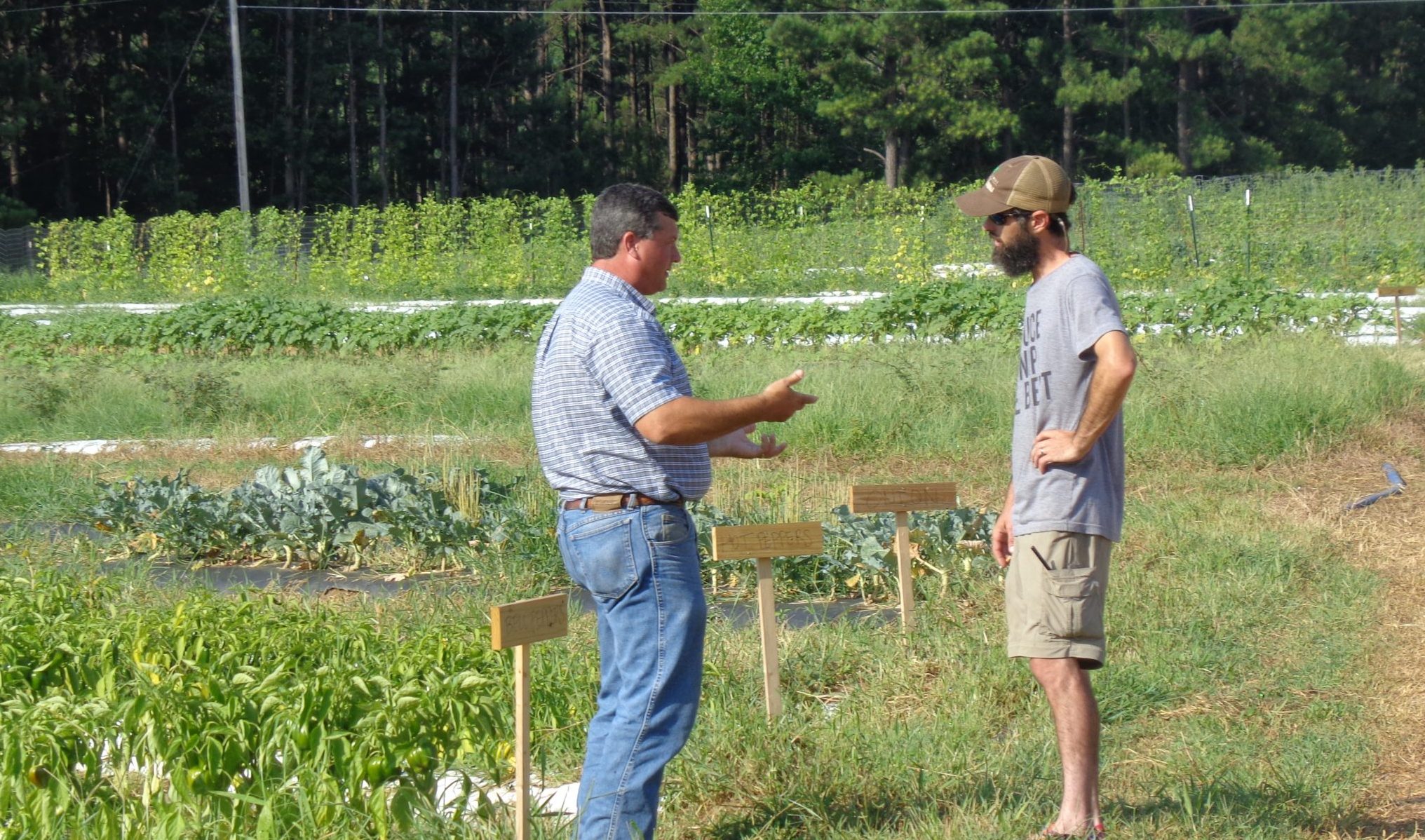Crop Production

Some of the most common questions received by Alabama Extension agents are about some aspect of fruit and vegetable production. A lot of questions come from people considering growing fruits and vegetables commercially but do not know where to start. Here are a few thing to keep in mind when considering growing horticultural crops.
Commercial horticulture refers to producing horticulture products and marketing them for a profit as part of a business. Crops that growers commonly produce are nursery crops, turf, fruits, vegetables, Christmas trees, and cut flowers. Commercial horticulture can also involve horticulture services such as landscaping or landscape maintenance.
Start With the End In Mind
Producing a high quality product is key, but the bottom line is: it has to sell. You do not get paid for growing produce, you get paid for selling it. If the goal is to sell the produce, growers need to consider where their market is. Some common ways people market their produce include roadside stands (at home or at a high traffic location), grocery stores, restaurants, door to door, farmers markets, online, and community supported agriculture. The prices received will vary according to where the produce is sold. All of these methods will not work for everyone but some of them will. Many successful farmers use a combination of these methods.
Deciding What Crops to Grow

Regional Extension Agent, Chip East, helps a local farmer in his field.
Communicate with the people who may buy the produce. Take time to visit potential markets and ask the managers of these locations about purchasing directly from the farm. Ask questions like:
- What produce is needed?
- What is difficult to get fresh?
- How do distributors want it packaged?
- How do distributors want it processed (peas shelled or corn shucked)?
- When is the best time of day or days of the week to deliver?
- What quantities are needed?
- Also, discuss potential prices.
If growers start small and grow into it, these questions will be answered. Keep in mind that it is sometimes hard for the purchaser of the produce to answer these questions. Building a relationship with the buyer may open doors to lock in produce sales. For example, if a restaurant is the target buyer, try giving some produce to the chef. This may build a relationship that could lead to future sales. Alabama Extension has budgets available that list all of the expenses associated with growing different crops that may assist when deciding what to grow.
Think About the Space Needed
There is most likely a market for anything growers choose to plant. However, some crops take up more space than others. This is something to consider if space is limited. Buyers want produce over a large part of the growing season. Growers will stagger plantings, which should allow them to harvest crops for as long as possible. High tunnels, row covers, and black plastic are expensive but help extend the season as well. All of these things need to be considered when looking at the space available to grow crops.
Challenges
There are many challenges that growers work through during the year. Weeds, insects, disease, and nutritional issues are the number one problems during the growing season. These issues can decrease the production of fields and a lower production means fewer crops to market—which is directly related to income. Alabama Extension can provide information on management decisions for these challenges.
Growers also need to consider the kinds of equipment available. Labor is a huge expense and equipment can save on labor costs. However, steer clear of purchasing unnecessary equipment. Start small and grow manageable crops with the resources available.
More Information
Alabama Extension has many resources that provide the needed information for experienced growers, as well as new producers. For more information on commercial horticulture and other topics, visit Alabama Extension online or contact your county Extension office.

